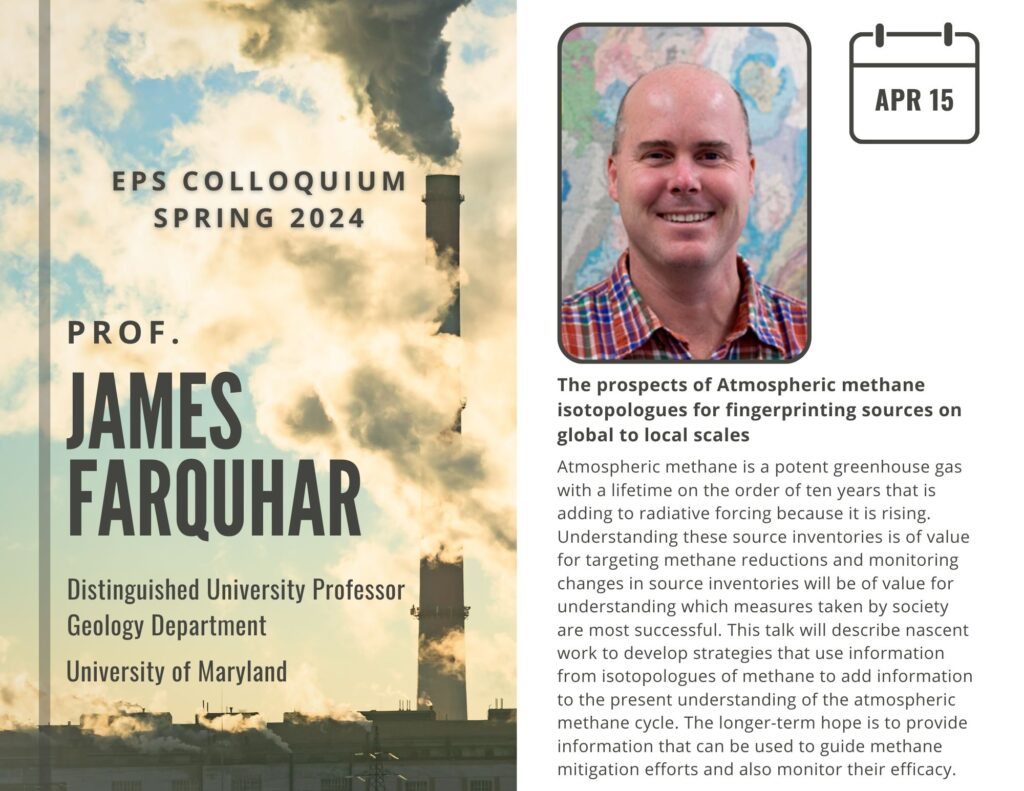EPS Colloquium – James Farquhar, University of Maryland
The prospects of Atmospheric methane isotopologues for fingerprinting sources on global to local scales
Atmospheric methane is a potent greenhouse gas with a lifetime on the order of ten years that is adding to radiative forcing because it is rising. Its ten-year lifetime, means that reduction in methane sources today have the potential to reduce its impact in the next few decades, providing potentially valuable time to develop other climate change solutions and to adapt in a changing world. Understanding of these source inventories is of value for targeting methane reductions and monitoring changes in source inventories (or sink strengths) will be of value for understanding which measures taken by society are most successful. A number of strategies already exist to track sources and sinks of atmospheric methane and have led to regular improvements in our understanding of the methane cycle, but more information still has the potential to be of value. This talk will describe nascent work to develop strategies that use information from isotopologues (isotopic variants) of methane to add information to the present understanding of the atmospheric methane cycle. The longer-term hope is to provide information that can be used to guide methane mitigation (and reduction) efforts and also monitor their efficacy.
To be added to the EPS colloquium mailing list, please contact Caroline Carr at carolinecarr@fas.harvard.edu.
Recording unavailable

James Farquhar is a faculty member in the Department of Geology and Earth System Science Interdisciplinary Center at the University of Maryland. For much of his career, his work focused on various aspects of sulfur isotope geochemistry. Recently, his research has changed to focus on the isotopic chemistry of atmospheric methane.

